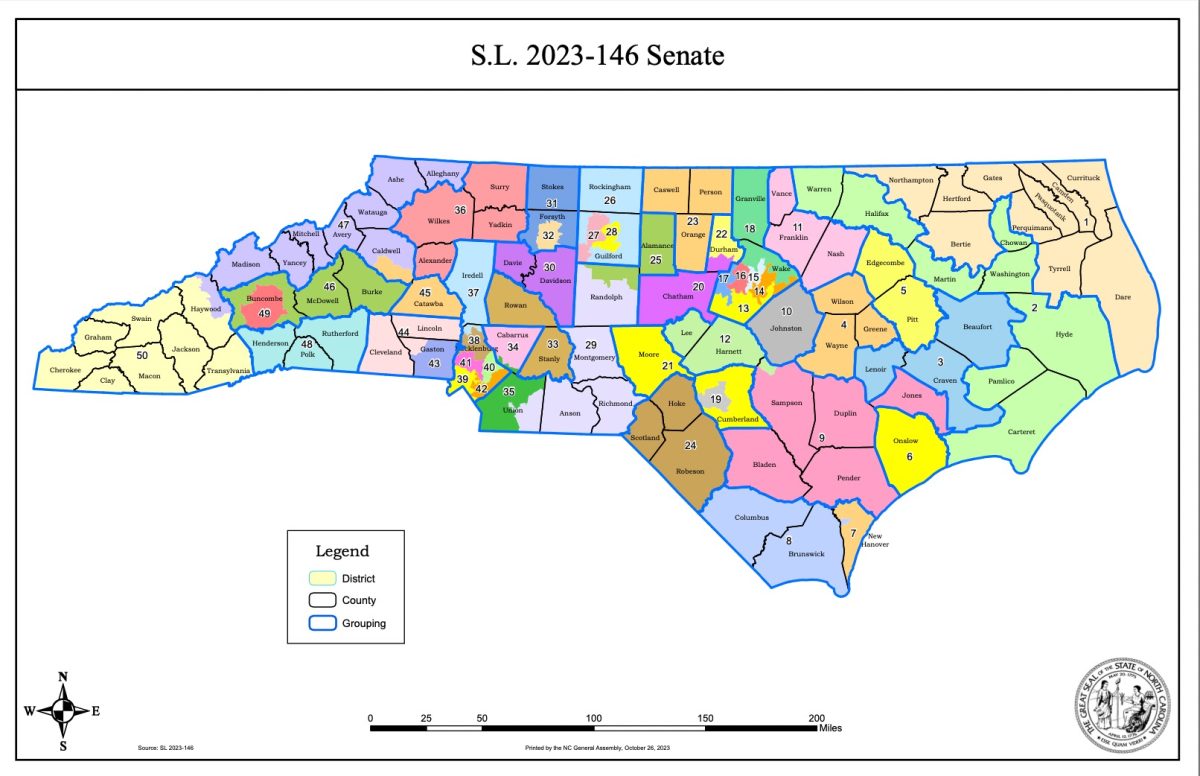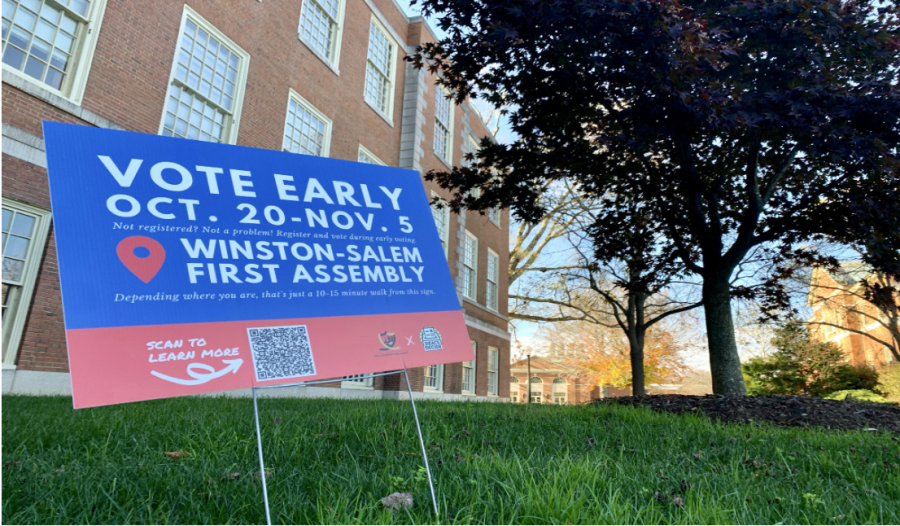A federal court ruled North Carolina’s electoral map unconstitutional on Jan. 9 because Republicans had drawn the map seeking a partisan advantage. The court’s opinion stated that the Republican-dominated state legislature had been motivated by “invidious partisan intent” and committed three constitutional violations. As a result, North Carolina will be forced to redraw the boundaries of its congressional districts.
North Carolina has a long history as one of the most gerrymandered states in the country. Even though the state swung to Barack Obama in 2008, elected a Democratic governor in 2016 and was only narrowly carried by Donald Trump, its congressional delegation is currently not so evenly split. Ten of the 13 Congressmen representing North Carolina are Republicans. According to the federal judges deciding the case, the General Assembly Republicans discriminated against non-Republican voters and violated their constitutional rights by drawing a map sustaining that ratio. The panel of judges deciding the case, which included a Barack Obama appointee, a Jimmy Carter appointee and a George W. Bush appointee, identified three constitutional violations. According to the panel’s opinion, the General Assembly had violated the equal protection clause of the 14th Amendment because it had “enacted the plan with the intent of discriminating against voters who favored non-Republican candidates.”
Second, it violated the First Amendment “by unjustifiably discriminating against voters based on their previous political expression and affiliation.” Third, the opinion said that the General Assembly had violated Article I of the Constitution, which gives states the power to draw congressional districts, “by exceeding the scope of the General Assembly’s delegated authority to enact congressional regulations and interfering with the right of the people to choose their representatives.” To remedy the situation, the opinion advised that an independent expert be hired to draw an alternative map.
This ruling is somewhat uncharted territory: While courts have invalidated congressional maps as racially discriminatory, judicial objection to gerrymandering for partisan gain is unprecedented. However, two similar cases are currently under consideration by the U.S. Supreme Court—one in Wisconsin claiming that Republicans drew congressional maps to partisan advantage and another claiming that Democrats did the same in Maryland.
“Until the Supreme Court resolves the Wisconsin and Maryland cases that involve similar but not identical issues to the North Carolina case, in a situation where the Supreme Court has yet to settle on a clear standard for identifying and remedying instances of partisan gerrymandering, the lower court’s ruling in the North Carolina case is likely to be put on hold,” said political science professor John Dinan.
The state legislature has requested that the Supreme Court put the lower court’s ruling on hold, and Chief Justice John Roberts has asked for a response to the stay request by Jan. 17. Therefore, the Supreme Court is likely to signal very soon whether or not the ruling can take effect.
According to Dinan, expectations that the ruling will have an impact on results of the 2018 midterm elections in North Carolina are premature. “Given the election calendar—with candidate filing in North Carolina scheduled for February—if the Supreme Court orders a stay of the lower court decision, this would likely mean that the 2018 North Carolina congressional elections would take place under the current district map rather than a re-drawn map,” he said.



















